SIRAJ
The Syrian Investigative Reporting for Accountability Journalism (SIRAJ) is a pioneering initiative dedicated to promoting investigative journalism and accountability in Syria. Established to address the critical need for independent and in-depth reporting amid the complex and challenging media landscape in Syria, SIRAJ strives to empower Syrian journalists with the skills, resources, and support necessary to conduct rigorous investigations into issues of public interest.
SIRAJ provides training, mentorship, and networking opportunities to Syrian journalists, equipping them with the tools and knowledge needed to produce high-quality investigative reports. Through its fellowship programs, workshops, and capacity-building initiatives, SIRAJ fosters a community of investigative journalists committed to upholding the highest ethical standards and serving the public interest.
One of SIRAJ’s primary objectives is to shed light on issues of corruption, human rights abuses, and governance failures in Syria, amplifying the voices of marginalized communities and holding those in power accountable for their actions. By uncovering and exposing wrongdoing, SIRAJ aims to contribute to greater transparency, accountability, and social change in Syria.
Moreover, SIRAJ collaborates with local and international media outlets such as OCCRP, The Guardian and Lighthouse Report and Daraj Media to amplify the impact of investigative reporting and ensure that the findings reach a wide audience. Through strategic partnerships and advocacy efforts, SIRAJ works to create an enabling environment for independent journalism in Syria and support the development of a vibrant and sustainable media ecosystem.
SIRAJ plays a crucial role in strengthening the role of journalism as a cornerstone of democracy and human rights in Syria, empowering journalists to fulfill their watchdog function and drive positive change in society.
Team

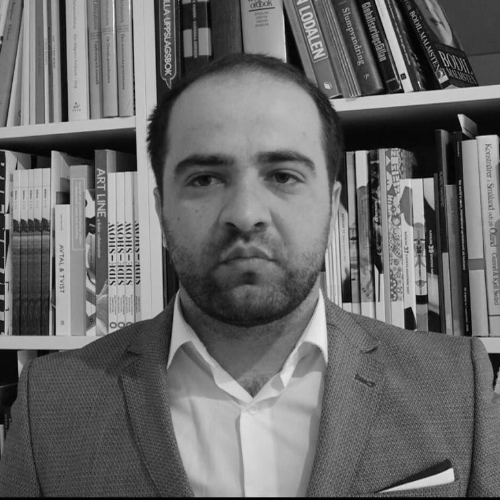


Our Vision
SIRAJ’s vision for Syria is one in which independent media empowers a free and democratic Syrian society with accurate, reliable, and accessible information that allows Syrians to make informed decisions about their own lives and futures.
Our Mission
SIRAJ’s mission is to promote transparency, accountability, justice, and the protection of human rights by publishing in-depth investigations on a variety of issues, including human rights abuses, war crimes, corruption, and social issues.
Goals
In order to fulfill our mission and make our vision a reality, we seek to the following through our investigative reporting:
- Promote accountability: SIRAJ aims to contribute to a more accountable society in Syria. We seek to expose corruption, human rights abuses, and other forms of wrongdoing by holding individuals, groups, and institutions accountable for their actions.
- Foster transparency: SIRAJ strives to promote transparency by shedding light on hidden information, investigative findings, and evidence related to critical issues in Syria. We aim to bring transparency to governance issues and conflict dynamics that affect Syrian society.
- Advocate for justice: SIRAJ is dedicated to advocating for justice in Syria. Through our investigative reports, we provide evidence and documentation that can support legal proceedings, truth and reconciliation efforts, and the pursuit of justice for victims of human rights abuses and war crimes.
- Uphold human rights: SIRAJ is committed to upholding human rights standards and advocating for the rights of Syrians affected by the conflict. Through its investigations, SIRAJ exposes violations, raises awareness, and contributes to efforts to protect and promote human rights in Syria.
- Contribute to positive change: SIRAJ’s ultimate vision is to contribute to positive social change in Syria. By highlighting issues, fostering public awareness, and promoting dialogue, we aim to influence policy, public opinion, and decision-making processes to create a more just and equitable future for all Syrians.
- Give a voice to the voiceless: SIRAJ amplifies the voices of Syrians who have been directly impacted by the conflict. By sharing their stories and experiences, SIRAJ provides a platform for those who have been marginalized and silenced and ensures that their voices are heard on both national and international levels.
- Foster media development: SIRAJ contributes to the development of independent media in Syria. By providing training, support, and resources to journalists, SIRAJ strengthens the capacity of local journalists to conduct investigative reporting and uphold journalistic standards.
- Collaborate and share knowledge: SIRAJ partners with other media organizations, NGOs, and international partners to share knowledge, resources, and investigative journalism best practices. By fostering collaboration, SIRAJ enhances the impact and reach of its investigations and contributes to a collective effort to address Syria’s challenges. SIRAJ’s partners include the Organized Crime and Corruption Reporting Project (OCCRP), Lighthouse Reports, Global Investigative Journalism Network (GIJN), Middle East Eye, Report for the World, The Guardian, Der Spiegel, El Pais, and numerous Syrian journalists and media organizations.
Our Approach
SIRAJ employs a range of investigative reporting techniques and methodologies to conduct thorough research and uncover hidden truths. This involves extensive data analysis, interviews with sources, information verification, and collaboration with local and international partners.
Our Impact
SIRAJ’s reporting has a global impact. In June 2022, SIRAJ collaborated with OCCRP, Lighthouse Reports, and other media partners to publish an investigation titled, “A ‘Bloody’ Trade: Inside the Murky Supply Chain Bringing Syrian Phosphates Into Europe,” which revealed how Syrian phosphate was making its way into the EU despite sanctions. In April 2023, partly because of the investigation, the European Union sanctioned the four companies named in the investigation. Similarly, the investigation titled, “Syrians ‘sacrifice’ themselves in Ukraine after coercive offer of money and political favours,” a collaboration between SIRAJ, The Telegraph, and Lighthouse Reports, resulted in travel bans and asset freezes against the individuals and entities that the investigation revealed to be recruiting Syrians to fight with Russian forces in Ukraine. In addition to successful accountability efforts like this, SIRAJ has also received a number of awards, including:
- 2023 June L. Biedler Prize for Cancer Journalism from the American Association for Cancer Research (AACR), US.
- Selected for the 2022 and 2023 Editor’s Pick: Best Stories in the World list by the Global Investigative Journalism Network, GIJN.
- Shortlisted for the 2022 Daphne Caruana Galizia award by the European Parliament, EU.
- 2021 Fetisov Journalism Award for Outstanding Contribution to Peace, FJA.
- Shortlisted for the 2020 Fetisov Journalism Award for Outstanding Investigative Reporting, FJA.
Challenges We Face
Syria is one of the hardest environments for journalists. The challenges SIRAJ faces include:
- Security risks: Operating in a conflict zone like Syria poses significant security risks to journalists and sources, including harassment and violence.
- Limited access: The ongoing conflict, government restrictions, and the presence of armed groups can make it difficult for SIRAJ’s journalists to reach certain locations or obtain information from key sources.
- Dangers to sources: Individuals who speak out against the regime or armed groups can face grave consequences.
- Disinformation and propaganda: SIRAJ must navigate Syria’s convoluted information landscape in order to verify facts and counter false narratives.
- Legal and political obstacles: Press freedoms are limited and investigative reporting can result in legal repercussions and censorship.
Despite these challenges, SIRAJ is committed to its mission to promote truth, transparency, and accountability in Syria. Our dedicated journalists and staff work diligently to overcome these obstacles and shed light on critical issues despite the difficult operating environment.
Media Partners
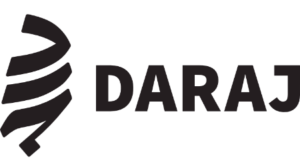





Donors

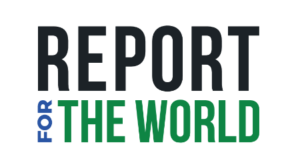
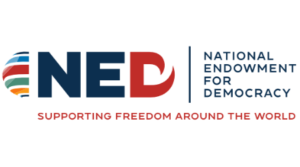
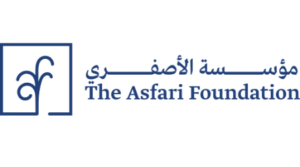
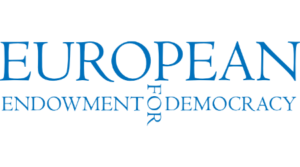
Fact checking
SIRAJ’s Pre-Publication Information Verification Methodology
“SIRAJ” follows a specific methodology for fact-checking before publication, employing detailed procedures and utilizing all available tools to ensure the accuracy of all information provided and whether it is supported by reliable sources before publication. The fact-checking process is considered a fundamental task for both journalists and editors, and today it often requires a third party to verify the content after the journalist and editor have completed their roles in fact-checking. This ensures that the content is verified without being immersed in the details of its creation, allowing for a focused and specialized scrutiny of the content, a third-party perspective, and a greater critical view of the work in which the journalist and editor have been involved for days, months, or sometimes years.
Therefore, SIRAJ collaborates with independent information auditors to fact-check all investigative reports and verify the accuracy of their content before publication. The pre-publication fact-checking process includes verifying the accuracy of all quotations used in the content, whether written or recorded, as well as all information, whether in the form of documents, numbers, tables, names of individuals, places, countries, companies, institutions, dates, currencies, geographical locations, surveys, scientific terms, translations, legal texts, and all accompanying images and videos.
The information verification process at SIRAJ begins from the first day of work on the investigation by the journalist, who must rely on reliable and primary sources of information, and the supervising editor ensures the journalist’s commitment to this. Then comes the role of the information auditor to conduct the final fact-check before publication.
SIRAJ’s methodology clearly defines the tasks required of journalists, editors, and information auditors to conduct the final fact-check before publication. Journalists are required to document every piece of information used in the investigation and rely on reliable and primary sources for obtaining information, while the supervising editor plays a major and essential role during the information fact-checking stage of the investigation. Therefore, it is important for them to cooperate closely with the information auditor and the journalist to complete this stage, which will ensure the review and publication of the investigation without any errors, thereby achieving the highest degree of accuracy in documentation before publication.
The information auditing process at SIRAJ is based on the principle of skepticism with the aim of fact-checking all content and not overlooking any element in it. The principle of skepticism here is not related to the integrity or professionalism of the journalist but is primarily related to the information auditor themselves, who must translate this principle into comprehensive and detailed review of the journalistic content to ensure no questioning of the professionalism of the journalist after publication if any errors are discovered or adversely affecting the institution’s reputation. SIRAJ greatly emphasizes the principle of skepticism and verification in the information auditing process by translating this principle into a comprehensive and detailed review of journalistic content. The main goal is to ensure that there is no questioning of the professionalism of the journalist after publication, achieved through a commitment to providing internal sources, evidence, and information.
Journalists’ experiences at SIRAJ in fact-checking rely on global experiences through cooperation with projects such as the Organized Crime and Corruption Reporting Project (OCCRP), the Arab Reporters for Investigative Journalism (ARIJ) network, the International Consortium of Investigative Journalists (ICIJ), and other projects.
SIRAJ always seeks to document and verify information accurately, contributing to the provision of reliable and impactful journalistic content.
On the other hand, information auditing is part of the task of editors who spend a long time overseeing the preparation of journalistic content, and therefore they may fall into the trap of not paying attention to some small details in the content. Thus, the process of fact-checking and the presence of information auditors mean providing a third-party perspective that is less immersed in the content and more capable of capturing any errors if found, thereby correcting them before publication.
Of course, there is a desire for institutions to publish journalistic stories as quickly as possible to keep up with events, which creates a kind of frustration with the time it may take to fact-check the content. However, thorough planning and preparation, along with providing a clear methodology for information auditing, greatly facilitate the task and reduce the time it takes. It is also important always to remember that publishing accurate information is more important and priority than the speed of publishing incorrect information.
Credibility is the foundation of professional journalism that must be enhanced, and the correct and accurate publication of information contributes to enhancing the credibility and professionalism of investigative content in SIRAJ.
